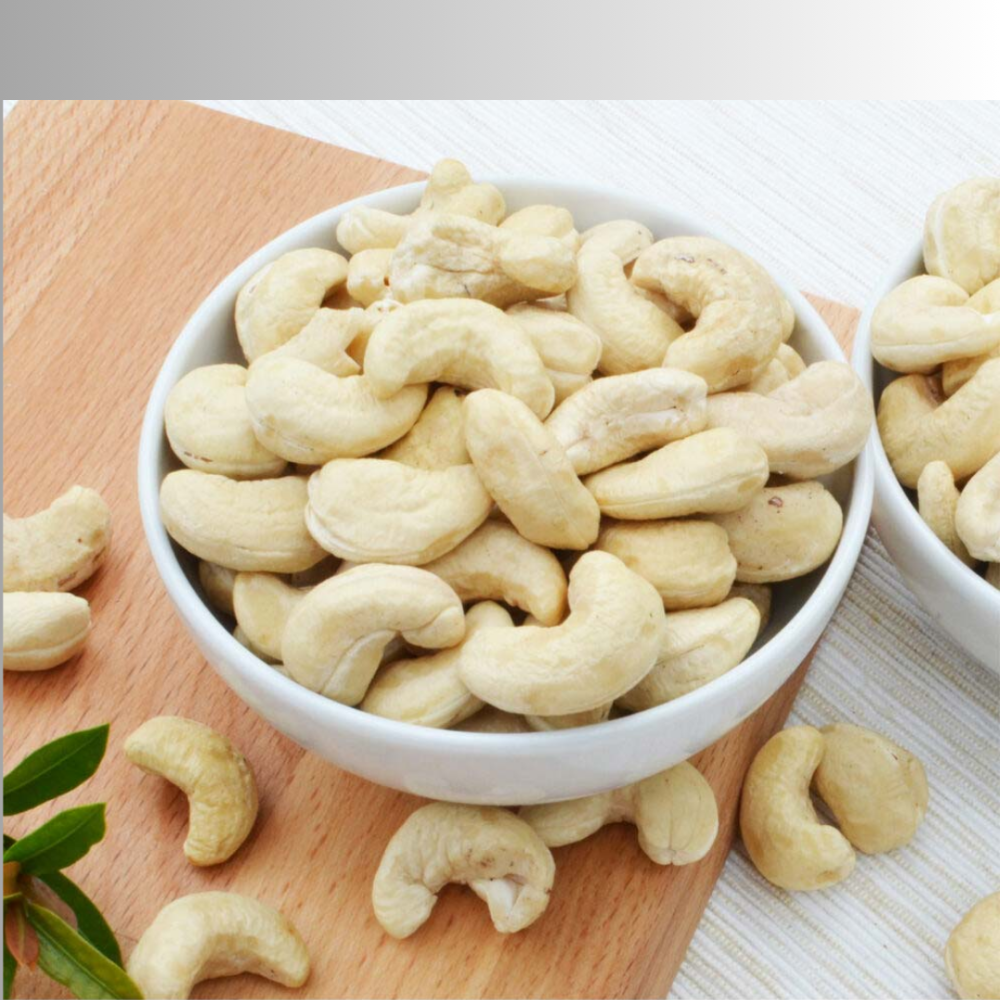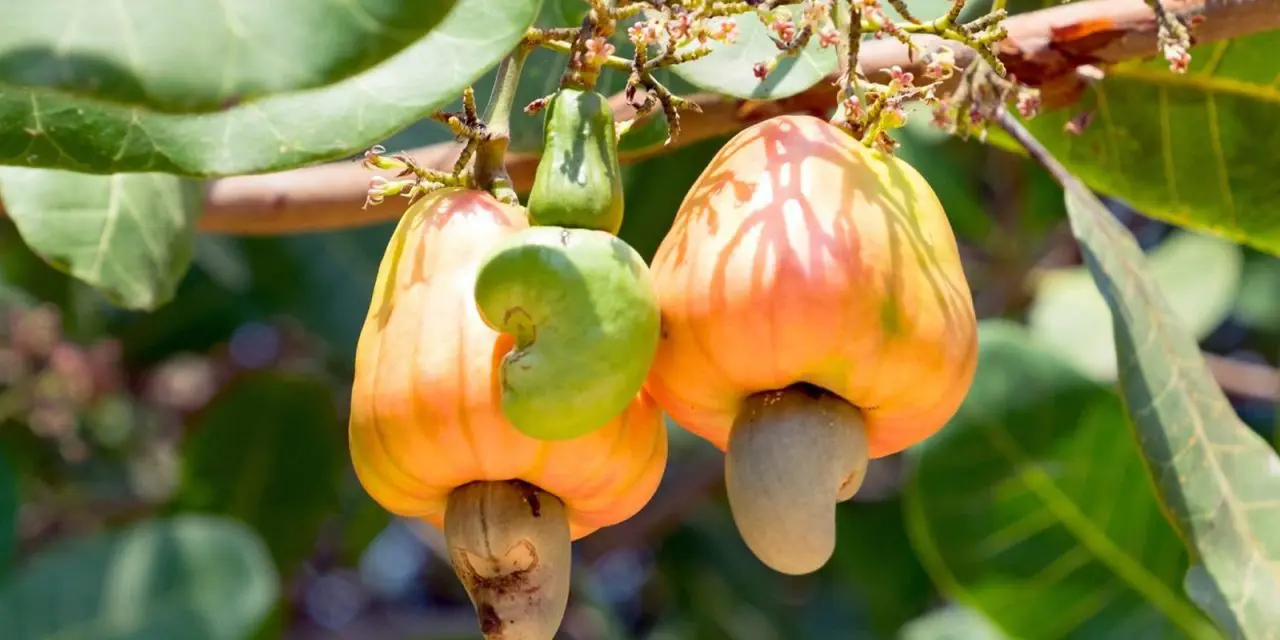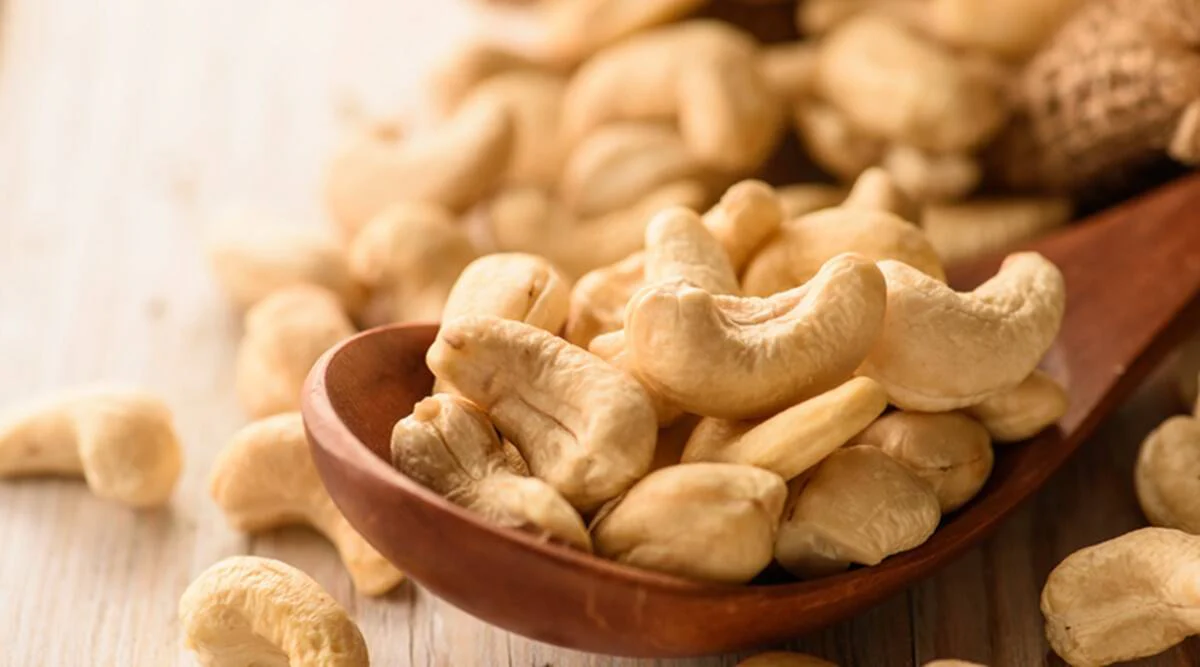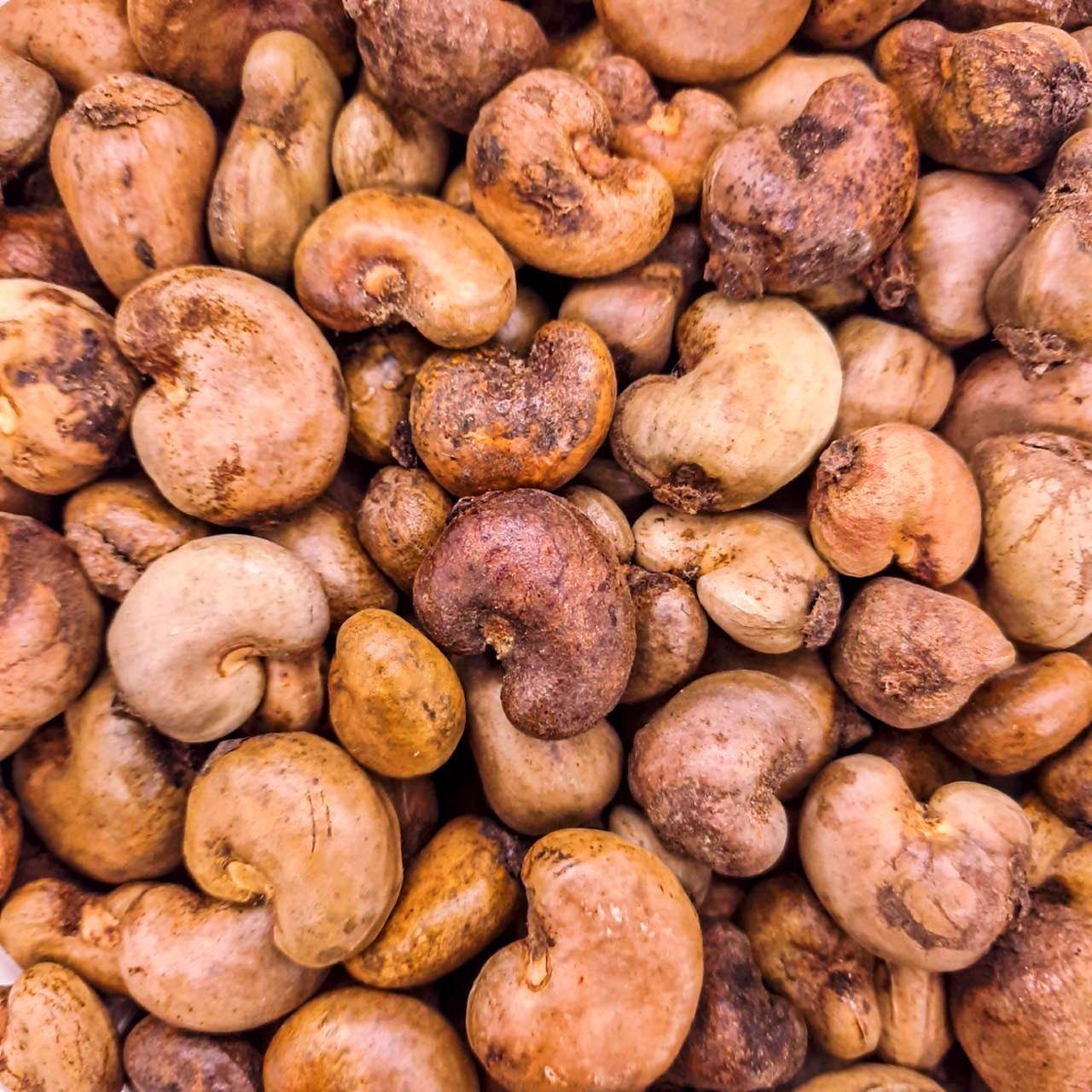Your cart is currently empty!

With a buttery and crunchy texture, it’s hard to find anyone who doesn’t like cashew nuts. Beyond being a go-to snack option, cashews are incredibly best for human health. These kidney-shaped nuts can be better dairy alternatives for vegans.
While you may already enjoy the taste of raw cashews, you might not know about their numerous health benefits. Cashews are packed with protein, fiber, and healthy fats, along with various vitamins and minerals that support overall health. However, some health-conscious individuals might be concerned about cashews’ oils and high-fat content.
So, are cashews truly good for you? Keep reading to discover more science-backed health benefits of eating raw cashews.
Nutritional Value Of Cashew Nuts
If you’re wondering whether cashews are good for you, let’s take a look at their nutritional value. Cashews are packed with healthy fats, especially monounsaturated and polyunsaturated fats. They are also a great source of protein, making them a popular choice among vegans and vegetarians. Additionally, cashews are rich in essential vitamins and minerals such as Vitamin B6, Vitamin K, Magnesium, Manganese, Phosphorus, and Zinc.
A 1-ounce serving of cashews contains:
- Calories: 165
- Protein: 5 g
- Fats: 11 g
- Carbohydrates: 10 g
- Fiber: 1 g
- Sugar: 2 g
10 Health Benefits of Adding Cashew Nuts to Your Daily Diet
Cashews are packed with nutrients and vitamins that can greatly benefit your health. When added to a balanced diet, they provide a rich source of protein, healthy fats, vitamins, and minerals. Cashew nuts are also high in antioxidants, which help lower inflammation and enhance cardiovascular health.

But what happens if you eat cashews every day? What are the benefits for your skin or for women and children? Let’s explore the ten surprising benefits of eating cashews.
#1. Promote Heart Health
Cashew nuts are rich in heart-healthy monounsaturated and polyunsaturated fats. These fats help lower cholesterol and triglyceride levels, reducing the risk of heart disease. Cashews are also high in antioxidants, magnesium, and potassium, all supporting heart health. Including soaked or roasted cashews in your diet can be a tasty and healthy way to keep your heart in good shape.
#2. Support Bone Health
Cashews are rich in magnesium, which is crucial for bone health. They also contain calcium and vitamin D, working together to keep your bones strong and healthy. The Vitamin K in cashews helps maintain bone density and reduces the risk of osteoporosis. Including cashews in your diet can be particularly beneficial if you have bone or joint issues.
#3. Boost the Immune System
Cashews contain minerals like zinc, copper, and vitamin E that are essential for a strong immune system. Zinc and copper help immune cells grow and function, while vitamin E, a powerful antioxidant, protects cells from damage and reduces inflammation. Adding cashews to your diet can help strengthen your immune system and keep you healthy.
#4. Helps in Weight Management
Cashews are a good source of protein, fiber, and healthy fats, making them helpful for weight management. These nutrients keep you feeling full for longer and help reduce hunger pangs. However, cashews are also high in calories, so it’s important to eat them in moderation. Along with roasted cashews, consider snacking on foxnuts or makhana, which are also high in protein and can help manage your calorie intake.

#5. Improves Brain Function
As said, cashews are rich in magnesium, vitamin E, and antioxidants that support brain health. Vitamin E in cashews enhances cognitive function and helps prevent age-related cognitive decline. Magnesium and monounsaturated and polyunsaturated fats also contribute to better cognition and memory. Including cashews in your diet can help maintain brain health and improve mental functions.
#6. Promote Healthy Skin
Cashews are great for your skin. They are rich in copper, which helps boost collagen production, which is essential for maintaining skin elasticity. Cashews also contain vitamin E and selenium, powerful antioxidants that protect the skin from damage caused by free radicals and premature aging. Including a moderate amount of roasted cashews in your diet can contribute to healthier skin.
#7. Regulate Blood Sugar
Cashews have a low glycemic index, which helps prevent spikes in blood sugar levels. The high fiber content in cashews slows down the absorption of sugar into the bloodstream, while healthy fats improve insulin sensitivity. Eating cashews as part of a balanced diet can help regulate blood sugar levels, especially for those with diabetes or at risk of developing diabetes. Include organic cashews in your diet in moderation to enjoy these benefits.
#8. Reduce Inflammation
Cashews are rich in Vitamin E, a powerful antioxidant that helps reduce oxidative stress and inflammation. They also have a high magnesium content, which further helps in lowering inflammation. Consuming cashews can reduce the risk of chronic diseases like ringworm, scurvy, and warts.

#9. Improve Digestion
Thanks to their high fiber content, cashews aid in digestion by reducing constipation and improving regular bowel movements. Cashews also contain prebiotics, a type of fiber that promotes the growth of good gut bacteria. However, it’s important to eat them in moderation to avoid digestive discomfort.
#10. Protect Cell Damage
Cashews are loaded with antioxidants, such as polyphenols and carotenoids, which help neutralize free radicals that cause cell damage. These antioxidants protect your body from diseases and reduce overall inflammation. Interestingly, roasted cashews have been found to have even higher antioxidant activity than raw ones.
Side Effects of Cashew Nuts
While cashews are nutrient-rich and offer numerous health benefits, consuming them in moderation is important. Here are some considerations to keep in mind:
- Pregnant and Breastfeeding Women and Diabetics: It’s advisable for pregnant and breastfeeding women, as well as people with diabetes, to limit their intake of cashews.
- Surgery Precautions: Since cashews can raise blood sugar levels, it’s best to avoid them in large quantities at least two weeks before any planned surgery.
- Raw Cashews: Raw cashews contain urushiol, a toxic substance. Therefore, to avoid potential harm, they must be consumed after removing their shells and roasting.
- Fried or Salted Cashews: To prevent excess calorie and sodium intake, avoid fried or salted cashews.
Potential Downsides of Cashews
- High in Calories: Cashews are calorie-dense, and their delicious taste might lead to overeating. Excess consumption can cause issues like obesity, high blood lipids, and increased blood sugar levels.
- Heartburn: Though not directly linked, fatty foods like nuts can sometimes cause heartburn, especially when eaten in large amounts.
- Allergies: Some people may be allergic to tree nuts, including cashews. If you experience symptoms such as itching, hives, or difficulty breathing after eating cashews, consult your doctor.
- Drug Interactions: Those on antidiabetic medications should be cautious, as cashews can interfere with the effectiveness of these drugs and cause issues with blood sugar control.
Conclusion
Cashew nuts are packed with nutrients, making them a great addition to a balanced diet. They are rich in protein and healthy unsaturated fats, along with a variety of essential vitamins and minerals. These nutrients contribute to overall health, including better heart health, improved digestion, and stronger bones.
However, like all nuts, cashews should be eaten in moderation. Eating too many can lead to an excess intake of calories and fats. Consuming them raw is also best, as salted or honey-roasted cashews can negate some of their natural health benefits by adding extra sodium and sugar.
FAQs
Is It Good to Eat Raw Cashews?
Eating raw cashews is not recommended because they contain urushiol, a toxic substance also found in poison ivy. This can cause skin rashes and other allergic reactions. It is safer to eat cashews that have been properly roasted or steamed to remove this toxin.
What Happens If We Eat Kaju Daily?
Eating cashews, or “kaju,” daily can offer numerous health benefits, such as improved heart health, better digestion, and stronger bones. However, due to their high calorie and fat content, it’s important to eat them in moderation. Consuming too many cashews can lead to weight gain and increased blood sugar levels.
How Many Raw Cashews A Day?
It is generally recommended to consume about 1 ounce (approximately 18-20 cashews) per day. This amount provides a healthy dose of nutrients without excessive calories or fats. Eating this moderate amount can help you enjoy the benefits of cashews, such as improved heart health and better digestion, without overindulging.
Is Cashew Good for the Skin?
Yes, cashews are good for the skin. They are rich in copper, which helps boost collagen production, which is essential for skin elasticity. Cashews also contain vitamin E and selenium, powerful antioxidants that protect the skin from damage caused by free radicals and prevent premature aging. Including cashews in your diet can contribute to healthier, more youthful skin.
How Many Calories Are in 10 Cashews?
Ten cashew nuts contain approximately 98 calories. They also provide a good amount of protein, healthy fats, and essential vitamins and minerals. While they are calorie-dense, their nutritional benefits make them a healthy snack option when eaten in moderation.

Leave a Reply